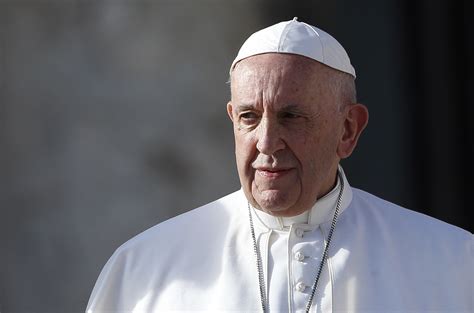Pope Francis visited Congress Thursday to enter into a dialogue with the American people: those who lead, those who work, the elderly, and the young.
As the first pope to address Congress, he called for unity, a sense of social responsibility, and a willingness to work together for the common good, the good of all.
He called for “hope and healing, … peace and justice” and that we reject the temptation to “the simplistic reductionism which sees only good or evil; or, if you will, the righteous and sinners.”
He called for maturity in facing the troubles confronting the world today. He asked us to remain open to welcoming immigrants and to live by the “Golden Rule.”
He was treated as a head of state, “the pope of the Holy See,” and revealed himself today to be both politician and diplomat.
He spoke for about 50 minutes to the Joint Session of Congress and touched on all the themes everyone expected: immigration, religious liberty, protecting human life at all stages, protecting the environment, and marriage.
But Pope Francis added two more: a call for the abolishment of the death penalty and for the end of the arms trade.
He did not use the words “climate change.” Instead, he called for us to “redirect our steps” so that we “avert the most serious effects of the environmental deterioration caused by human activity.”
He did not directly reference “same-sex marriage,” but in the strongest language he has used so far he said:
“I cannot hide my concern for the family, which is threatened, perhaps as never before, from within and without. Fundamental relationships are being called into question, as is the very basis of marriage and the family. I can only reiterate the importance and, above all, the richness and the beauty of family life.”
If we were not aware that he is a man of action, Pope Francis also revealed himself clearly to be a Jesuit of the “contemplatives in action” school in his references to Dorothy Day, Thomas Merton, and Dr. Martin Luther King, Jr. as model Americans. All three were persons of action, but also persons of faith and prayer.
King and President Abraham Lincoln he especially noted for their defense of liberty. But the example of Merton seemed to sum up all for Pope Francis:
“Merton was above all a man of prayer, a thinker who challenged the certitudes of his time and opened new horizons for souls and for the Church. He was also a man of dialogue, a promoter of peace between peoples and religions.”
He began his speech by following the lead of Israeli Prime Minister Benjamin Netanyahu when he pointed to the marble relief of Moses hanging on the wall in the chamber.
The work of Congress, he said, is like that of Moses:
“Yours is a work which makes me reflect in two ways on the figure of Moses. On the one hand, the patriarch and lawgiver of the people of Israel symbolizes the need of peoples to keep alive their sense of unity by means of just legislation. On the other, the figure of Moses leads us directly to God and thus to the transcendent dignity of the human being. Moses provides us with a good synthesis of your work: you are asked to protect, by means of the law, the image and likeness fashioned by God on every human face.”
In reminding Congress that their work must protect the human being who is made in the image and likeness of God, Pope Francis reminded our nation that if we are to be true to our history and foundational values, God must remain at the center of all we are, all we do.
In speaking of Day, Merton, King, and President Abraham Lincoln, the pope asked us to remember that ours is a history of liberty and unity, and that in particular that we are “one nation under God.”
